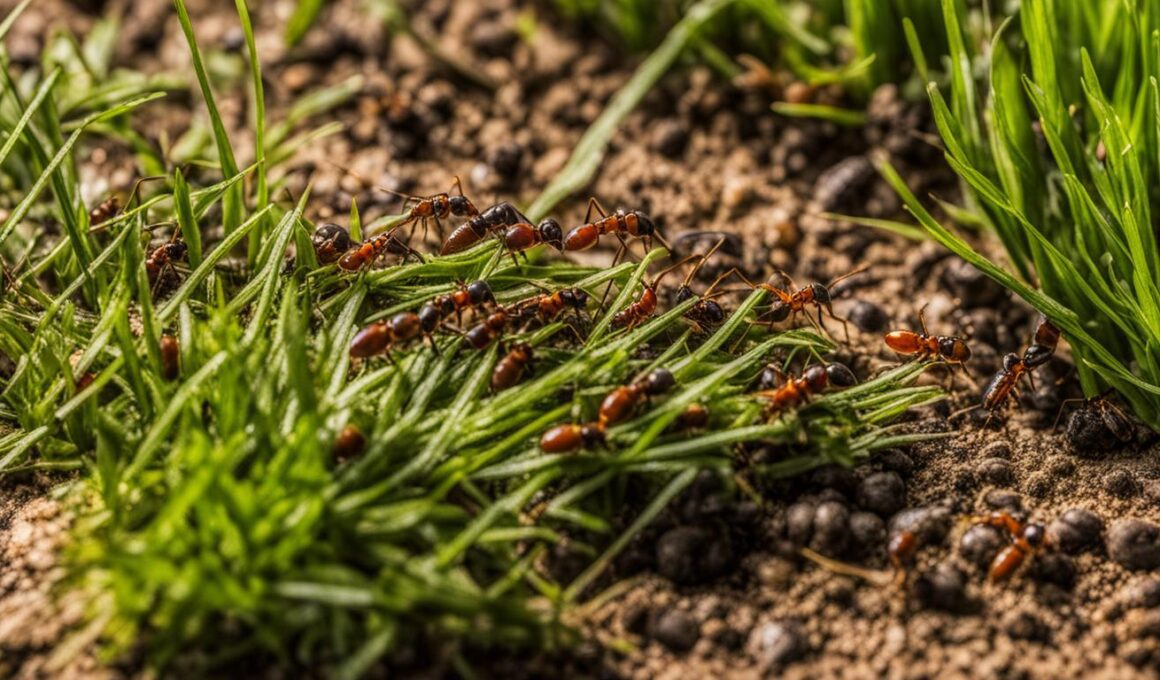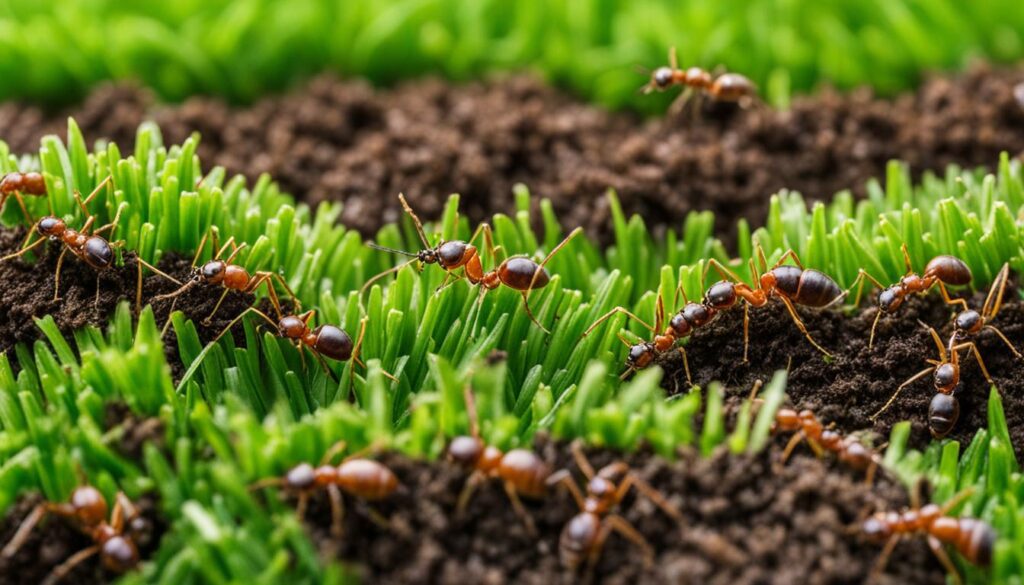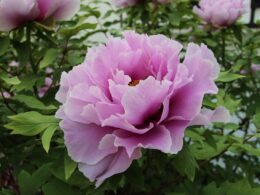Ants, small yet fascinating creatures, have piqued our curiosity about their dietary habits, particularly when it comes to grass. While ants may not be avid consumers of grass, they can still have an impact on your beloved lawn. Let’s explore their dietary habits and understand how they can affect your yard.
The Negative Effects of Ants on Your Lawn
Ants can have a detrimental impact on the health and aesthetics of your lawn. Their harmful behavior extends beyond mere inconvenience. Let’s explore the various ways in which ants can negatively affect your lawn:
1. Plant Damage:
Ants have a particular fondness for sugary substances, including fruits and vegetables. Unfortunately, this means that they may damage plants in your yard by consuming these edible offerings. Their persistent foraging can result in unwelcome destruction to your cherished flora.
2. Disruption of Grass Growth:
Ants are not limited to feeding on plants alone. They also have a tendency to consume grass seeds, impairing the growth of new grass blades. This can lead to sparse patches in your lawn, compromising its lush and vibrant appearance.
3. Soil Disruption:
As ants move around, excavating tunnels, and building small mounds, they disturb the soil structure. Their incessant activity can loosen the soil, creating an inconsistent texture that disrupts the visual uniformity of your lawn.
4. Attracting Ants to Your Home:
Having an ant colony on your lawn can act as a beacon, attracting ants to your home. These tiny invaders can find their way into your living spaces, potentially contaminating food supplies and causing general inconvenience.
In order to maintain a pristine lawn, it is essential to be aware of the negative effects of ants and take appropriate action to mitigate their harmful influence.
The Positive Effects of Ants on Your Lawn
Despite the negative effects, ants can actually benefit your lawn in various ways. Their beneficial behavior contributes to the overall health and vitality of the ecosystem. Here are some ways ants play a positive role in maintaining a thriving lawn:
- Pest Control: Ants are natural predators and scavengers. They have a voracious appetite and help control the population of pests that can harm your lawn, including grubs, fleas, termites, ticks, and chinch bugs. By consuming these pests, ants play an important role in maintaining a pest-free environment for your grass to thrive.
- Soil Aeration: Ants contribute to soil aeration through their digging and tunneling activities. As they create intricate underground tunnels, they loosen the soil and improve its structure. This allows better penetration of water and nutrients, enhancing the overall health of your lawn.
- Natural Fertilizer: Ants carry organic materials, such as dead insects, plant matter, and other debris, into their nests. They discard these materials in underground chambers, breaking them down over time. This process enriches the soil with nutrients and acts as a natural fertilizer for your lawn, promoting lush and healthy grass growth.
- Seed Spreading: Some species of ants participate in seed dispersal. They collect seeds from various plants and carry them away from the parent plant. This behavior aids in the growth of plants, including native species, and contributes to the overall biodiversity and ecological balance of your lawn.
Conclusion
In conclusion, ants have the potential to impact your lawn both positively and negatively. While they can be a nuisance, damaging plants and disrupting the soil, they also offer natural benefits such as pest control, soil aeration, natural fertilization, and aiding in seed spreading. Deciding whether to exterminate ants or not depends on weighing the pros and cons specific to your situation.
If you opt to control ants, there are several natural remedies you can try. Diatomaceous earth and borax are DIY options that can help deter and eliminate ants. However, it’s vital to consider the potential harm to the environment and beneficial insects when using chemical insecticides.
Maintaining a healthy lawn through proper lawn care practices is another effective way to deter ant infestations. Regularly mowing the grass, removing debris, and keeping the lawn well-watered can make it less attractive to ants.
Can Ants Be Harmful to Dogs if They Eat Mulch?
Yes, ants can be harmful to dogs if they eat mulch. Some types of mulch can contain harmful chemicals or pesticides, which can also attract ants. To ensure mulch safety for pets, pet owners should choose pet-friendly mulch options and regularly inspect their yard for any signs of ant infestations.
Will Putting Topsoil Over Compost Help Control Ants in the Garden?
Yes, putting topsoil over compost can help control ants in the garden. The topsoil creates a barrier and makes it harder for ants to access the compost. In addition, the topsoil can also help promote better decomposition of the compost, ultimately discouraging ants from making it their home.









